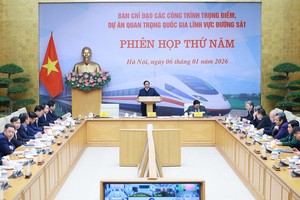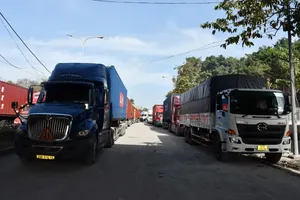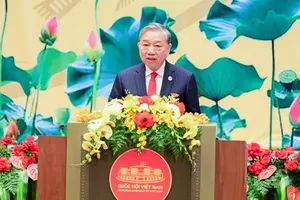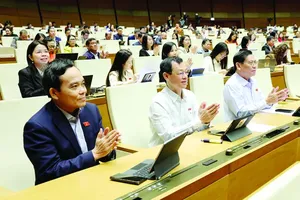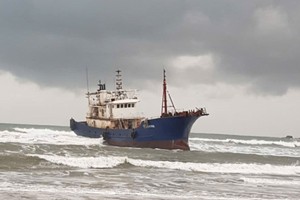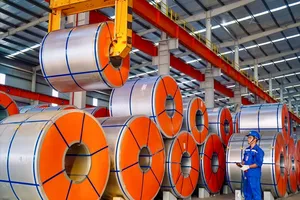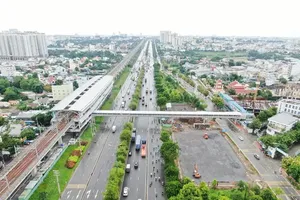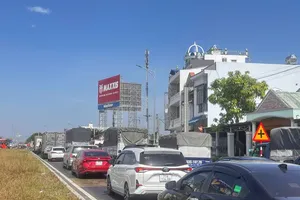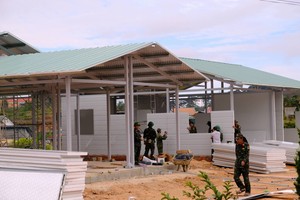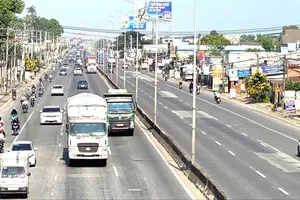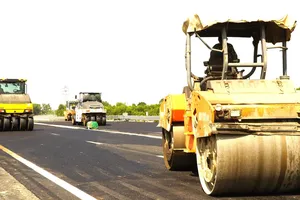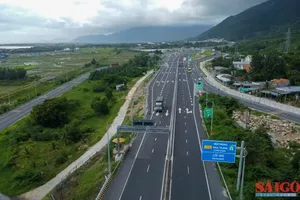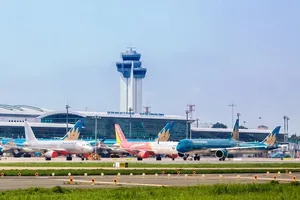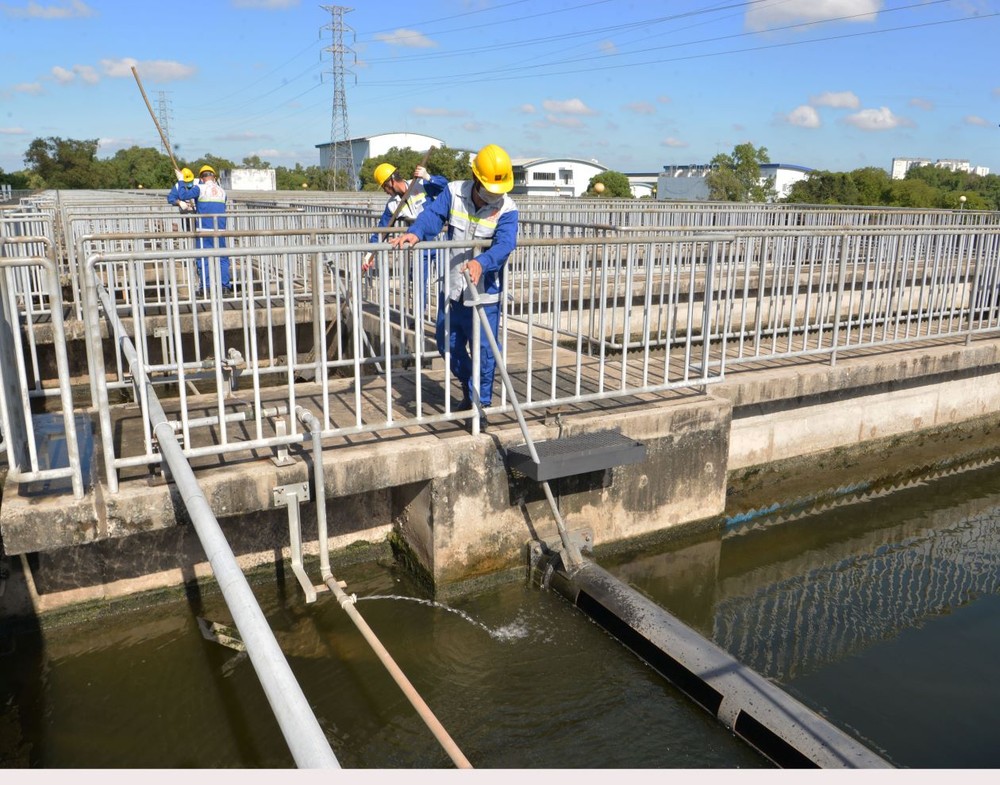 |
Binh Hung Water Treatment Plant (in Binh Chanh District of HCMC) in operation |
The Ministry of Natural Resources and Environment shared that the depletion and pollution in water resources have severely affected the socio-economic development in Vietnam. They have originated from unthoroughly-treated domestic sewage in urban areas (only 12-15 percent being treated) and wastewater from industrial or agricultural activities; overuse of pesticide and artificial fertilizer in farming activities; illogical use of water resources, and negative impacts of climate change (flooding, landslide).
The World Bank has once stressed that the water resources in Vietnam are too limited and too polluted. Adding to that is the serious state of saline intrusion by varying degrees happening in most estuaries near the river systems of Hong – Thai Binh, Vu Gia – Thu Bon, Dong Nai, and Cuu Long. Moreover, water pollution is one of the most serious threats to the national economy, being able to reduce GDP by 4.3 percent a year.
Nguyen Quynh Anh from the Executive Board of the Southeast Asian Network of Scientists and Technicians stated that Vietnam is now facing the dangers of too much dependence on water resources from other countries (accounting for 63 percent), unthoroughly treated sewage in urban areas (85 percent) directly released into the environment. Meanwhile, the effectiveness of water use in the country is rather low. A cubic meter of water can only earn US$2.37, a tenth of the global average. It is expected that the nation will spend $12.4-18.6 million a day to treat wastewater in 2030.
Therefore, Quynh Anh proposed that to ensure the security of water resources for socio-economic development, Vietnam needs to synchronously adopt various measures like raising the public’s awareness about effective and economical water use, increasing investment in upgrading sewage collection and treatment, and more strictly punishing those discharging unprocessed wastewater into the environment.
Sally Armstrong, Head of the Committee in charge of Industrial and International Cooperation Program – Australian Water Association, shared that advanced technologies nowadays can greatly boost the adaptation level of the water sector to climate change. Hence, Vietnam should increase its research and technology transfer activities to devise better solutions for water resource security maintenance (monitoring, forecasting, and warning). She then stressed that Australia is willing to support Vietnam to address current issues in the water sector.
Dr. Tong Thi My Thi, Director of the Center for Sustainable and Green Economy (Vietnam Institute of Economy), suggested that the country should have special mechanisms and policies to increase the economic value of a water unit. Digital transformation in water management should be accelerated as well.
It is also necessary to change the tax rates and water supply fees to raise the corresponding budget for water circulation. This, in turn, can adjust the water use behaviors of both manufacturers and consumers.
The next step is to promote water diplomacy with countries sharing water resource with Vietnam and other international partners through innovations in the access, management, and sustainable exploitation of the transboundary water resource.
The Ho Chi Minh City Department of Natural Resources and Environment reported that so far, the city has applied various solutions to protect the quality of surface water, including better planning, renovating degraded apartment buildings, resettling households living on rivers and canals, relocating polluted factories in residential areas.
HCMC has built three sewage treatment plants, namely Binh Hung Water Treatment Plant – stage 1 (with a capacity of 141,000m3/day), Binh Hung Hoa Water Treatment Plant (capacity of 30.000m3/day), and Tham Luong – Ben Cat Water Treatment Plant (capacity of 131.000m3/day). In the 2020-2025 period, it will finish the second stage of Binh Hung Water Treatment Plant and build the new Nhieu Loc – Thi Nghe Water Treatment Plant (capacity of (480.000m3/day). Along with the completion of its culvert system, HCMC can process over 77 percent of its domestic wastewater.
120 cases of law violation related to exploiting water and discharging sewage in excess of allowable volumes.
